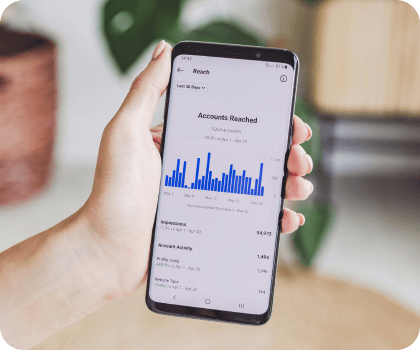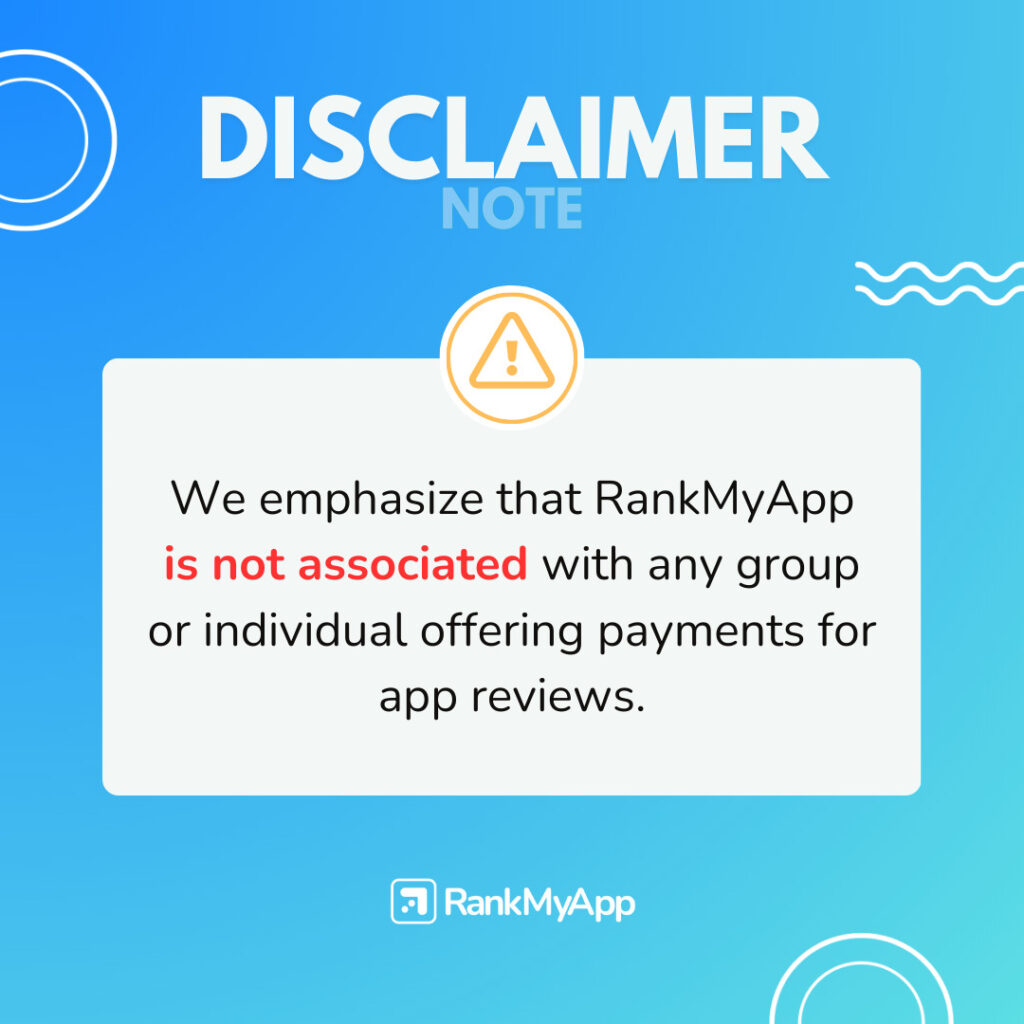In recent years, mobile marketing has emerged as one of the key drivers behind app success. With the rapid growth in smartphone usage and shifting consumer habits, businesses are increasingly turning to mobile marketing strategies to enhance their app performance.
In this article, we’ll explore what mobile marketing is, the benefits it offers businesses, and a range of strategies and tactics that can be employed to increase organic traffic and, consequently, boost your app’s success.

What is mobile marketing?
Mobile marketing is a strategic approach that focuses marketing efforts on mobile devices like smartphones and tablets. This field encompasses a wide range of techniques and channels, including in-app advertising, mobile-optimized social media strategies, and mobile-specific search engine optimization (SEO).
The core of mobile marketing lies in its ability to engage mobile users in a relevant and effective way. It means that businesses aim to reach their target audience exactly where they spend most of their time—on their smartphones and tablets. The primary goal is to promote products or services, but it can also include improving the performance of mobile apps.
In an increasingly mobile-oriented world, mobile marketing has become a vital part of any business strategy looking to reach its audience effectively. It’s a constantly evolving field as mobile technology advances and consumer behaviors change. Therefore, it’s essential for businesses to stay on top of trends and adopt innovative approaches to remain competitive in this dynamic landscape.
Benefits of mobile marketing for businesses
Mobile marketing offers numerous valuable benefits for businesses, driving success in an increasingly mobile-centric environment.
Reach and engagement: With billions of mobile devices in use worldwide, mobile marketing provides an unprecedented reach. This means businesses can connect with a vast and diverse audience. Additionally, mobile apps offer a unique opportunity to engage users more deeply compared to other channels. This results in more meaningful engagement, as users spend more time interacting with apps on their mobile devices.
Precise targeting: One of the critical advantages of mobile marketing is the ability to target with high precision. Mobile marketing strategies allow businesses to tailor their messages based on demographic data, geographic location, and user behavior. This means messages and offers can be personalized to meet the specific needs and interests of the audience. By doing this, you can ensure that your messages reach the right people at the right time, increasing the effectiveness of your campaigns.
Measurability: One of the greatest advantages of mobile marketing is its precise measurability. Businesses can track a wide range of key metrics, such as app installations, conversion rates, user retention, and more. This granular measurement capability allows companies to accurately assess the performance of their campaigns. Moreover, it provides valuable insights to make real-time adjustments and optimize their marketing strategies. This data-driven adaptability makes mobile marketing a powerful tool for improving campaign performance and maximizing return on investment (ROI).

App Optimization strategies to increase organic traffic
App Store Optimization (ASO) plays a critical role in mobile marketing, particularly when it comes to boosting organic app traffic. Let’s dive deeper into these essential strategies:
ASO (App Store Optimization)
Similar to SEO (Search Engine Optimization) for websites, ASO focuses on improving your app’s visibility in app stores like the Google Play Store and Apple’s App Store. This optimization involves several practices, including the strategic selection of relevant keywords.
Choosing the right keywords increases the likelihood of your app being found by users searching for terms related to your content. Additionally, optimizing descriptions and app icons is crucial. Clear, persuasive descriptions and memorable, attractive icons can capture users’ attention and encourage them to download your app.
Responsive design
Ensuring that your app’s design is responsive and engaging on mobile devices is essential. Usability and aesthetics play a significant role in retaining users.
If your app doesn’t provide a satisfactory experience on smaller screens, users are likely to abandon it quickly. Therefore, investing in a design that works seamlessly across smartphones and tablets is critical.
Make sure the navigation is intuitive, touch elements are easily accessible, and content is displayed appealingly on mobile devices. This not only improves the user experience but also contributes to increased organic traffic, as satisfied users are more likely to recommend and engage with your app regularly.
These app optimization strategies are crucial for improving your app’s performance and boosting organic traffic. They not only increase your app’s visibility in stores but also ensure that users have an enjoyable and engaging experience, which is key to attracting and retaining a loyal audience. Therefore, investing time and resources in these strategies is essential for mobile marketing success.

Mobile marketing tactics to improve app performance
Mobile marketing tactics are essential for improving your app’s performance. By adopting an approach that includes in-app advertising, social media, email marketing, push notifications, and mobile SEO, you can enhance your app’s visibility, engagement, and overall success in the growing mobile market.
In-App Advertising: An effective mobile marketing strategy involves placing ads in other popular apps. This allows you to reach users who are already familiar with the app experience. These ads can take many forms, from simple banners to interactive videos, and can direct users straight to your app’s download page.
Social Media: Social media platforms are fertile ground for promoting your app. With millions of daily active users, platforms like Facebook, Instagram, and Twitter offer exceptional opportunities to reach your target audience. You can create mobile-specific ads and target them based on demographic data, interests, and user behavior.
Email Marketing: Email remains a powerful tool in mobile marketing. You can strategically use email to communicate with your users and encourage them to take specific actions. For example, you can send emails requesting reviews or shares on social media. Moreover, email campaigns are a great way to keep your users informed about updates, special offers, and news related to your app.
Push Notification Campaigns: Push notifications are an effective way to re-engage existing app users. You can use them to send updates about important releases, exclusive offers, and reminders about app usage. However, it’s important to use them sparingly to avoid overwhelming users.
Mobile SEO: SEO (Search Engine Optimization) also plays an important role in mobile marketing. Ensure that your website and content are optimized for mobile devices to appear in search results on mobile. This increases your app’s visibility when users perform searches related to your niche or area of expertise.
Measuring the success of mobile marketing strategies
Measuring the success of mobile marketing strategies is crucial for understanding how your campaigns are performing and identifying areas for improvement. To achieve this, you need to track specific metrics that offer valuable insights into the impact of your efforts.
One such metric is the app installation rate, which shows how many users opted to install your app after interacting with your campaigns. This initial metric demonstrates the level of interest your strategies generate among the audience.
Another important metric is the conversion rate, which measures the percentage of users who complete the desired action, such as making a purchase or filling out a form, after interacting with your campaigns.
Additionally, retention rate is a key indicator of your app’s quality. It represents the percentage of users who continue to use the app after a certain period, indicating the ongoing value your app provides.
Finally, ROI (Return on Investment) is a financial metric that evaluates campaign performance against cost, calculating the ratio between marketing investment and revenue generated. Achieving a positive ROI is a sign that your strategies are delivering profit.
Together, these metrics provide a comprehensive understanding of the performance of your mobile marketing strategies. Remember to customize your metrics based on your company’s specific goals to get an accurate view of the impact of your mobile marketing strategies.
Conclusion
Mobile marketing is a powerful tool for businesses looking to improve their app performance. With effective optimization strategies and well-targeted tactics, you can increase organic traffic, attract more users, and achieve the success you’re aiming for. However, staying up-to-date with the ever-evolving trends in mobile marketing is crucial to remaining competitive and relevant in the market.
In this rapidly changing landscape, partnering with mobile marketing experts like RankMyApp can be the key to achieving exceptional results. Take advantage of the opportunities mobile marketing offers and elevate your app’s performance to the next level. Learn more about how RankMyApp can drive your app’s success today!





